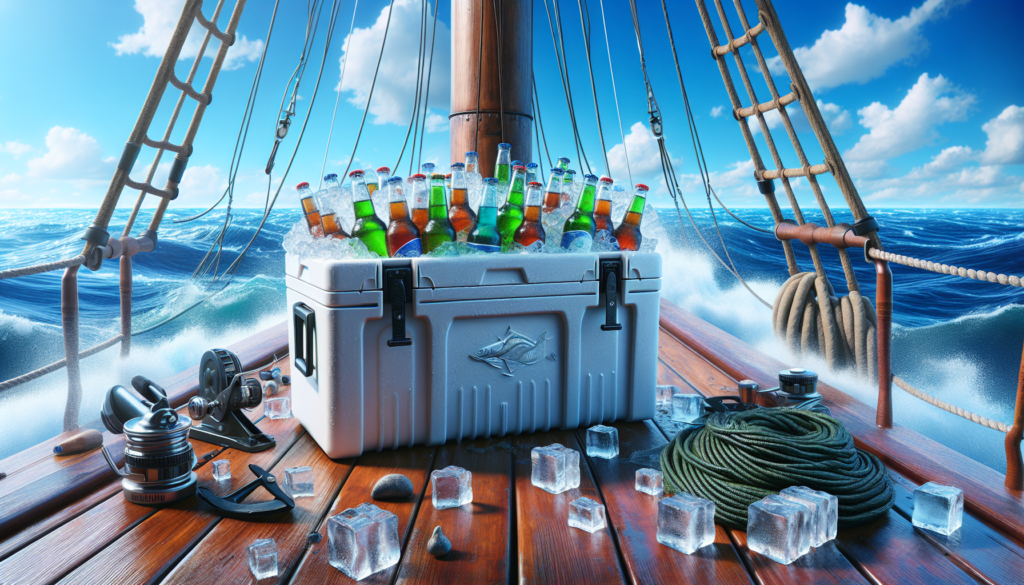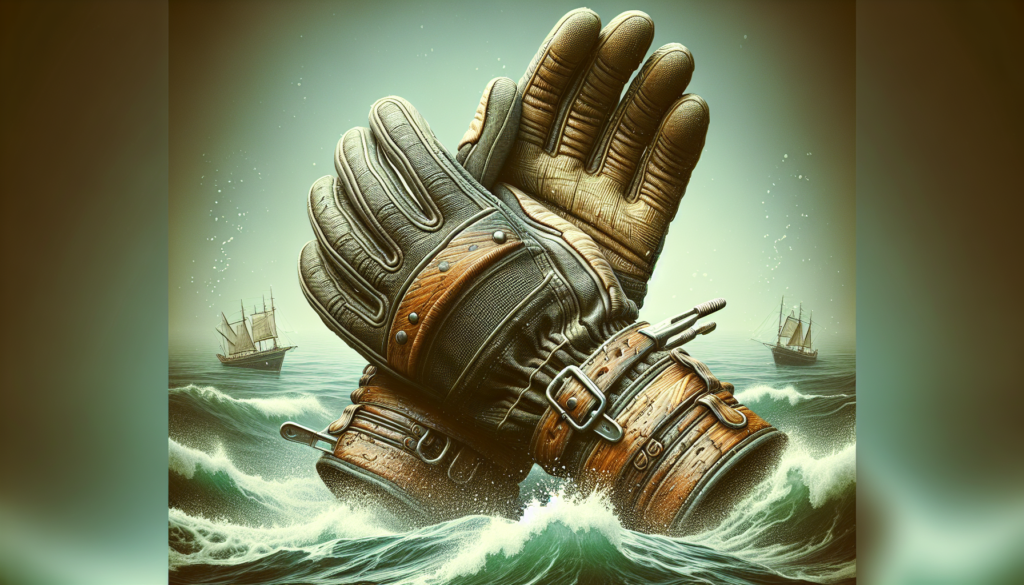Exploring Marine Coolers: Keeping Things Cool on the High Seas
When it comes to marine adventures, whether it’s a leisurely fishing trip, a day out on the water, or a long voyage across the open ocean, keeping food and drinks fresh and cool is essential. This is where marine coolers come into play, providing a reliable solution for preserving perishable items in the harsh marine environment. In this comprehensive guide, we will delve into the world of marine coolers, exploring their features, benefits, applications, and much more.
The Evolution of Marine Coolers
Marine coolers have come a long way since their inception. In the early days, sailors relied on makeshift methods to keep their provisions cool, using ice harvested from frozen lakes or rivers stored in insulated containers. However, with advancements in technology and materials, modern marine coolers have undergone a significant transformation.
Today, marine coolers are made from durable, high-quality materials such as rotomolded plastic, which provides excellent insulation and durability. These coolers are designed to withstand the rigors of marine environments, including exposure to saltwater, UV rays, and rough handling. With features like thick insulation, airtight seals, and secure latches, marine coolers are built to keep contents cold for extended periods, making them an indispensable accessory for any boating or fishing trip.
The Benefits of Marine Coolers
Marine coolers offer a range of benefits that make them a must-have for any marine enthusiast. One of the primary advantages of marine coolers is their superior insulation, which helps maintain the desired temperature inside the cooler, whether it’s keeping ice frozen or drinks chilled. This insulation is crucial for preserving perishable items such as food, bait, and drinks, ensuring they stay fresh and safe to consume.
Furthermore, marine coolers are designed to be rugged and durable, capable of withstanding the harsh conditions of the marine environment. Whether it’s exposure to saltwater, extreme temperatures, or rough handling, marine coolers are built to last, making them a reliable companion for any marine adventure. Additionally, many marine coolers come with features like non-slip feet, tie-down points, and integrated bottle openers, adding convenience and functionality to their design.
Applications of Marine Coolers
Marine coolers find a wide range of applications in various marine activities, from recreational boating to commercial fishing. One of the most common uses of marine coolers is for storing food and drinks on boats, ensuring that passengers have access to fresh and chilled provisions throughout their journey. Fishermen also rely on marine coolers to keep their catch fresh until they return to shore, preserving the quality of the fish for sale or consumption.
In addition to storing provisions, marine coolers are also used for transporting perishable items such as seafood, bait, and medical supplies. For commercial fishing vessels, marine coolers play a vital role in maintaining the quality and freshness of the catch, reducing spoilage and maximizing profits. Similarly, medical boats and research vessels use marine coolers to transport temperature-sensitive medications and samples, ensuring their integrity and efficacy.
Choosing the Right Marine Cooler
When it comes to selecting a marine cooler, there are several factors to consider to ensure you choose the right one for your needs. The size of the cooler is an essential consideration, as it should be large enough to accommodate your provisions but not so bulky that it becomes cumbersome to transport. Additionally, look for features like thick insulation, airtight seals, and sturdy construction to ensure the cooler can maintain the desired temperature and withstand the demands of marine environments.
Another factor to consider is the type of insulation used in the cooler. Some marine coolers use foam insulation, while others use vacuum insulation panels or other advanced materials. Foam insulation is effective at keeping contents cold but can be bulkier and less efficient than other types of insulation. Vacuum insulation panels, on the other hand, are thinner and more lightweight, providing excellent thermal performance without adding bulk to the cooler.
Expert Opinions on Marine Coolers
To gain further insights into the world of marine coolers, we reached out to experts in the field for their opinions and advice. According to Dr. Sarah Johnson, a marine biologist and avid sailor, “Marine coolers are an essential piece of equipment for anyone spending time on the water. Not only do they keep food and drinks fresh, but they also play a crucial role in preserving the quality of the catch for fishermen.” Dr. Johnson recommends choosing a marine cooler with thick insulation and durable construction for optimal performance.
Captain Jack Reynolds, a veteran commercial fisherman, emphasizes the importance of reliability and durability when selecting a marine cooler. “As a fisherman, my livelihood depends on the quality of the catch, so I need a cooler that can keep fish fresh and safe until I return to shore. I look for marine coolers with heavy-duty construction, secure latches, and excellent insulation to ensure my catch stays cold and fresh,” says Captain Reynolds.
Common Misconceptions About Marine Coolers
Despite their widespread use and popularity, there are several common misconceptions about marine coolers that deserve clarification. One of the most prevalent myths is that all marine coolers are created equal, and any cooler will suffice for marine applications. In reality, not all coolers are designed to withstand the demands of the marine environment, so it’s essential to choose a high-quality marine cooler with features tailored for marine use.
Another misconception is that marine coolers are only useful for keeping food and drinks cold. While this is one of their primary functions, marine coolers have a wide range of applications beyond storing provisions. From preserving the quality of the catch to transporting temperature-sensitive items, marine coolers play a crucial role in marine operations and should be chosen accordingly.
Comparative Analysis of Marine Coolers
When comparing different marine coolers on the market, it’s essential to consider various factors to make an informed decision. Some key aspects to evaluate include the size, insulation, durability, and additional features of the cooler. Look for marine coolers with thick insulation, airtight seals, and sturdy construction for optimal performance in marine environments.
Additionally, consider the cooling capacity and ice retention of the cooler, as this will determine how long your provisions stay cold. Some marine coolers can keep ice frozen for several days, making them ideal for long journeys or trips where access to fresh supplies is limited. Finally, compare the price and warranty of different marine coolers to ensure you get the best value for your investment.
FAQs About Marine Coolers
1. Q: How long can a marine cooler keep ice frozen?
A: The ice retention of a marine cooler depends on factors such as insulation, ambient temperature, and usage. High-quality marine coolers can keep ice frozen for several days, while others may only maintain ice for a day or two.
2. Q: Can I use a regular cooler for marine applications?
A: While you can use a regular cooler for marine activities, it’s recommended to choose a marine cooler designed specifically for the demands of the marine environment. Marine coolers are built to withstand saltwater, UV rays, and rough handling, making them more suitable for marine applications.
To Wrap Things Up
In conclusion, marine coolers are an essential piece of equipment for anyone venturing out on the water. From preserving the freshness of provisions to maintaining the quality of the catch, marine coolers play a crucial role in marine activities. By choosing a high-quality marine cooler with excellent insulation, durable construction, and additional features tailored for marine use, you can ensure your provisions stay fresh and safe throughout your journey. So, the next time you set sail, don’t forget to pack your marine cooler and keep things cool on the high seas!



